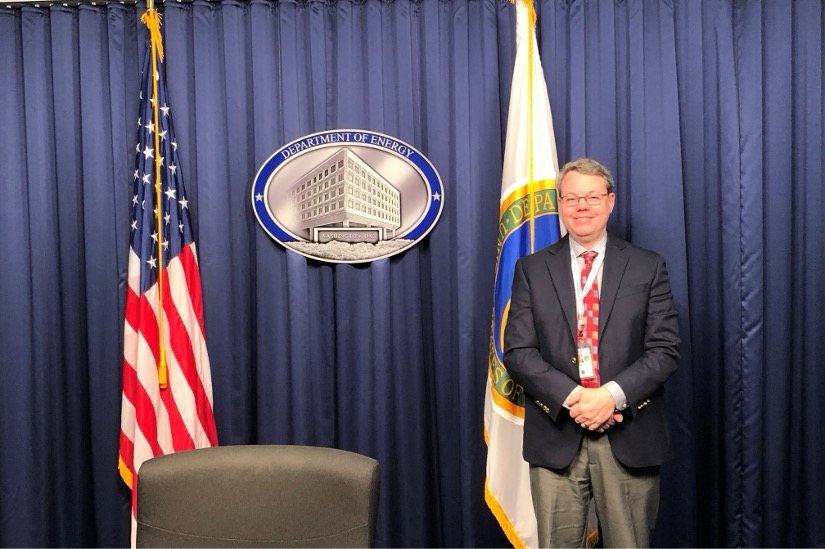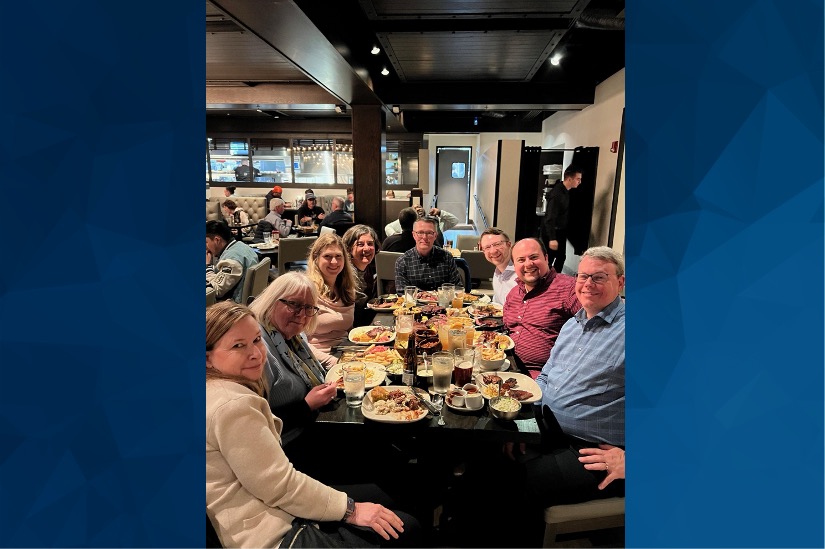Meet Your Board: Andy Myers
Meet Your Board is a regular series spotlighting each member of the FLC's Executive Board, the governing body responsible for carrying out the organization's mandated mission to promote, educate and facilitate federal technology transfer.
Andy Myers: Technology Transfer Lead, Department of Energy (DOE) Kansas City National Security Campus
1. What has drawn you to a career in federal technology transfer?
I am fascinated by and drawn to the intersection of science and people – specifically, how technology blends with business, law and application. It’s always been important to me to explain the research I was doing in various jobs to a non-science audience. Sometimes that was just in conversation, but often it was to professionals who could grant research funding or partners who could help develop or commercialize technology. Those were some of the most enjoyable aspects of each job I’ve had, and before I knew it, I gained enough experience to be a full-time tech transfer professional.
As a chemist by training, my education centered heavily on science that came out of the federal lab system, and by scientists who accomplished ground-breaking work in that environment. When an opportunity arose to work in T2 at DOE’s Kansas City National Security Campus, I readily joined up and am happy to contribute back to that federal technology and research enterprise. Our federal research and manufacturing facilities are really an amazing source of well-supported technology, people and opportunity.
2. What motivates you to volunteer your time to serve on the Board?
When I first transitioned over to the federal side of T2, I learned from and was offered help by a variety of new colleagues. FLC was a central part of that, and I’m happy to give back to others by volunteering for an institution and cause I believe in. Many people don’t quite “get” what we do or understand the environment in which we do it. One of my goals is to help other T2 professionals connect with training, professional development and best practices.
3. What strength or skill do you bring to your position on the Board?
I’ve had several careers that give me a unique perspective and hopefully will help contribute to the Board. My first job was as a research chemist at a small business, working in the SBIR world. I’ve also worked in academic research management and T2, now federal T2. I’ve had exposure to economic development, worked with international scientists and organized technical meetings. All of those things have T2 and partnership components, and I look forward to seeing how they can strengthen and broaden FLC and our profession.
4. As you and the Board guide the FLC’s future direction, what do you anticipate will have the most significant impact on the landscape of federal tech transfer in the coming years?
I think the partnership with AUTM is just starting to bear fruit, and I hope to continue to work with them to bring the same rigor they demonstrate in the academic world to the federal side. The pandemic has shifted thinking in the way we interact with other people. Many of us work from home or in a hybrid situation; that’s nice and flexible for individuals, but it poses challenges to interacting with and supporting our inventors and licensees. Our connected world also offers an easier way to make those connections, but it poses potential problems for IP security and issues like U.S. manufacturing. I expect FLC to address all of those issues over the next few years.
5. What is one little-known fact about yourself?
I delivered our third child at home when my wife’s labor was unexpectedly short, and my daughter (not who I delivered) experienced the same thing last summer when she had our first grandchild at her home. I don’t necessarily recommend it, but it makes sense to pay attention in those pre-birth classes.

